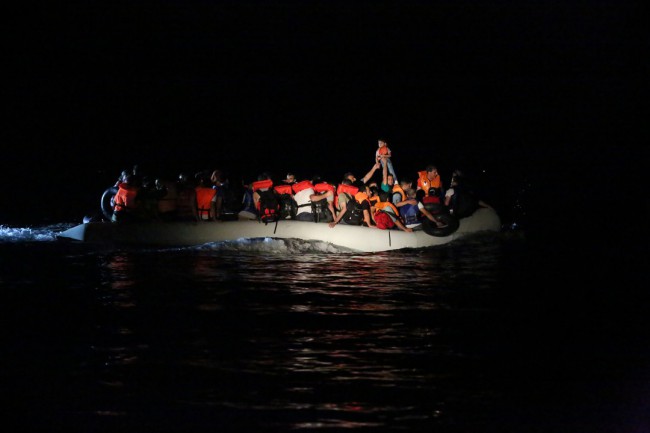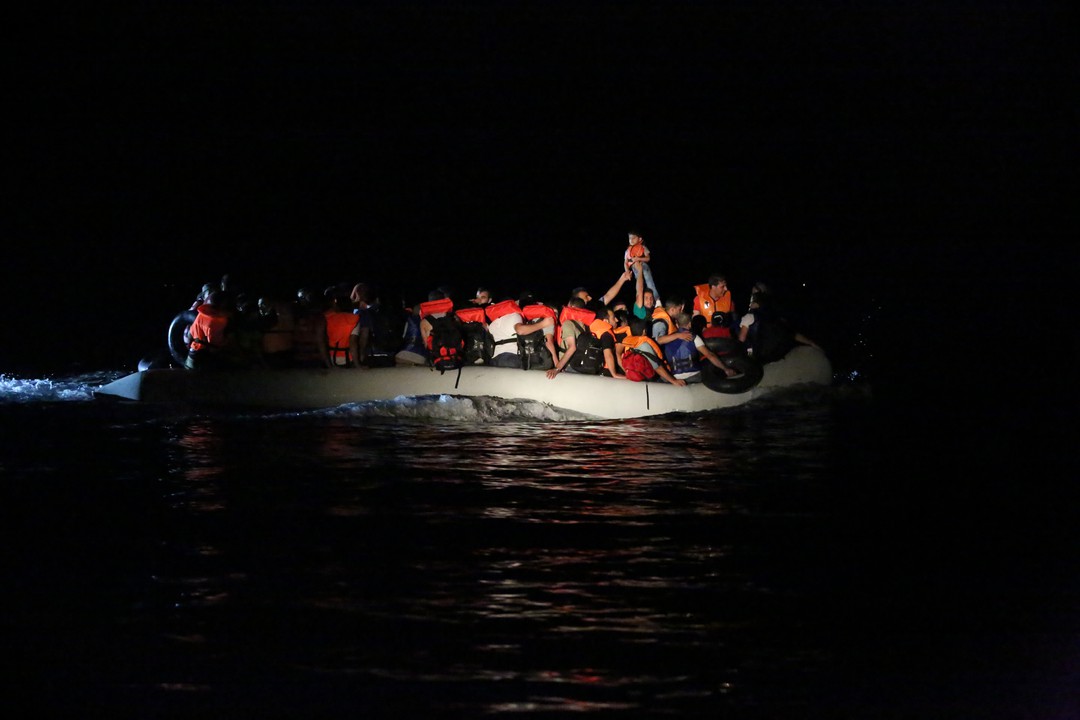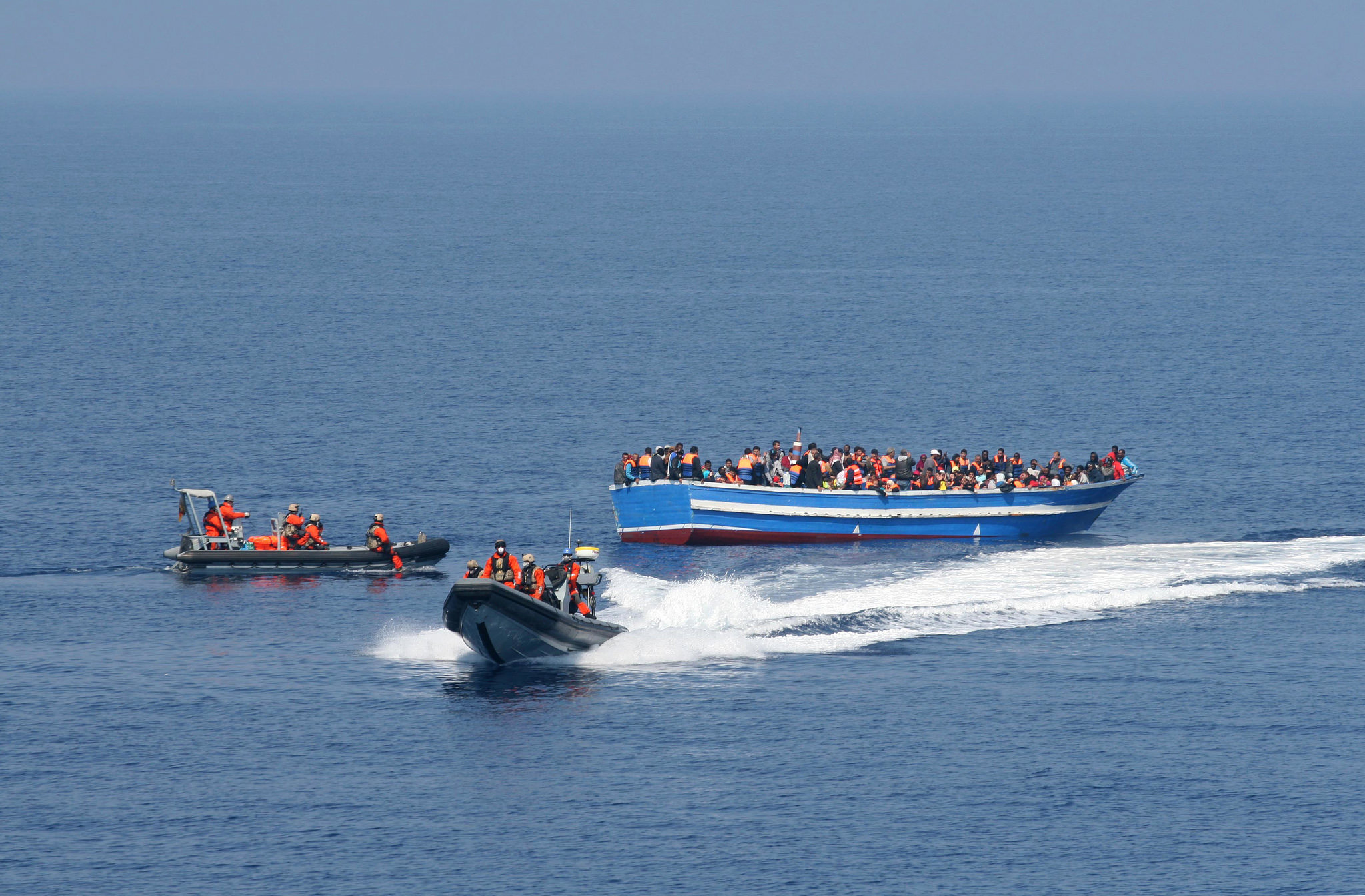The flow of refugees continues to arrive in Greece. Europeans pay dearly for an analytical error

(B2) “150.000 people took the risk of crossing between Turkey and Greece last month (October)” despite deteriorating weather conditions according to the latest assessment just published by the Frontex agency, the European border control agency. " That is 13 times more than in the same period of 2014 (8500 in October 2014)! »
Syrians but also Afghans
On this path, “Syrians continue to account for the largest number of arrivals, although in recent weeks the share of Afghan nationals has increased significantly notes the European agency. A situation that is largely due to the situation in Afghanistan, confirms a diplomat we interviewed about this recent increase. " The capture of Kunduz by the Taliban has made many Afghans fear that the pattern of the 1990s will be repeated”, with the departure of the Soviets, the fall of the Najibullah government (almost 4 years later) and the arrival of the Taliban. "We see arriving not only Hazaras but also different ethnic groups ". This reflects a new Afghan wave after those who, refugees from Iran, more or less in an illegal situation, were expelled or preferred to return to the path of exile rather than having to register in the Islamic Republic.
Half a million people arrived since the beginning of the year
Since the beginning of the year, 540.000 migrants have thus arrived on the Greek islands, according to Frontex. Most then moved up to the north, the Balkans, Austria and Germany, causing cascading border closures. From January to October, some 500.000 “ Illegal border crossing detections were recorded on the EU external borders in the Western Balkans, mainly on Hungary and Croatia's borders with Serbia ».
Cascading problems
Most of the migrants detected in the region had previously arrived on one of the Greek islands in the Aegean Sea and then traveled through the former Yugoslav Republic of Macedonia (Fyrom) and Serbia. " When Hungary built a fence on its border with Serbia (1) and tightened border controls in September, migrants started crossing Serbia's border with Croatia in record numbers notes the European agency.
The Mediterranean sea route in decline
In contrast to record figures in Greece and the Western Balkans, the Central Mediterranean sea route saw the number of people crossing from Libya to Italy “drop by half compared to 2014” bringing the figure for arrivals “ at 8 in October ". A fairly significant drop is also observed when we do the annual count. For the first ten months of 2015, the "Libyan" route provided 140 migrants and refugees "against nearly 000 for the same period of 155.000".
The shortage of boats but also maritime action?
A fall explained largely by the shortage of boats available to smugglers explains the Frontex agency. NB: We can also consider that the presence of reinforced ships played an initial deterrent effect with the arrests of suspects which are beginning to become more systematic (see in particular 4 suspects arrested in the Mediterranean by Leopold I et A dragnet off the coast of Libya. 14 smugglers charged)
A rhythm that never falters
A dramatic forecast error
« It continues to happen at a pace that does not let up” told B2 a Western diplomat with a good knowledge of Greece. “Europeans believed that with worse winter weather, the flow would stop or slow down. It was a mistake. They keep coming ". During periods of bad weather, there is a lull. Only 200 or 300 arrive. But at the slightest thinning. It resumes. Several thousand arrive in a few hours ". In fact, it only takes a small hour for a boat equipped with good engines to make the crossing. Double or a little more if the engines are weaker. Or a limited period of time.
The Turkish, Greek navy lets pass
The Turks do not intervene. Neither did the Greek Navy. She was ordered not to intervene to limit the movement. A political instruction from the Tsipras government which does not want to use political means or have a repressive policy (thus the policy of detention centers has been, if not abandoned, at least slowed down). Only the Greek coastguards are therefore present in the area, suffering from a cruel lack of means. And, on the side of the Greek government, the instruction is now clear: "no life must be lost at sea". " The system is better organized and rehearsed now “says our interlocutor. The migrants have barely arrived on the other side waiting for ferries to take them to the mainland.
The deposit of the pass
In Piraeus, the port of Athens, waiting for buses which, for 20 or 30 euros, take them to the Macedonian border (Fyrom). There too the border is open. And the Macedonians hasten to pass "the baby" on to the Serbs, who pass them on to the Croats (for lack of sympathetic Hungarians) and the latter to the Slovenes. Ljubljana, now practices the same policy of "not in my backyard" (not in my garden) and gets rid of the refugees on the Austrians. Anyway, the refugees do not want to stay in the Balkans and even less to go to the countries of Eastern Europe which have not really demonstrated a real tradition of welcoming.
Relocation: a failure!
The relocation system, put in place with difficulty in June and reinforced in September, therefore does not really work. Only a few hundred people have actually been relocated today. And the Member States have only announced just over 3000 places available (out of a total of 160.000). Quite simply - explains our interlocutor - because it only concerns " people who have applied for asylum in Greece ". However, very few of them are willing or able to register. The Greeks, overwhelmed, register only barely 10% of the people who have arrived. The famous hotspot of Lesvos does not really work. It should be noted that the migrants themselves do not want to register. They don't want to go to countries other than Germany.
Germany and Austria
Angela Merkel's message has gone beyond borders. " They do not swear to a destination: Germany, even Austria or Sweden ". France ? " It's not really a very popular destination ". Even countries ready to welcome refugees, and having certain resources, but less known to migrants, are struggling to find candidates for relocation. The Luxembourg Minister for Foreign Affairs, Jean Asselborn, had the bitter experience of this recently. To find the 30 candidates for exile in Luxembourg, " it almost had to be redone remarks our diplomat, half ironic, half sorry.
Maximum pressure on less than ten countries
The triple effect of the opening of borders to everything in the Balkans, of the weak will to welcome certain countries (Eastern Europe, United Kingdom, etc.) and of the own will of migrants and refugees , actually reinforces “ pressure on just a few countries ". In addition to Greece and Italy, the frontline countries, half a dozen other countries are really concerned: Germany, Austria, Sweden and, to a lesser extent, Denmark, Belgium and the The Netherlands. Either a totally untenable situation... The extraordinary European summit in Valletta risks being tense.
(Nicolas Gros-Verheyde)
(1) A boundary which is an "external border" of the European Union and therefore constitutes an obligation for Hungary to close.

